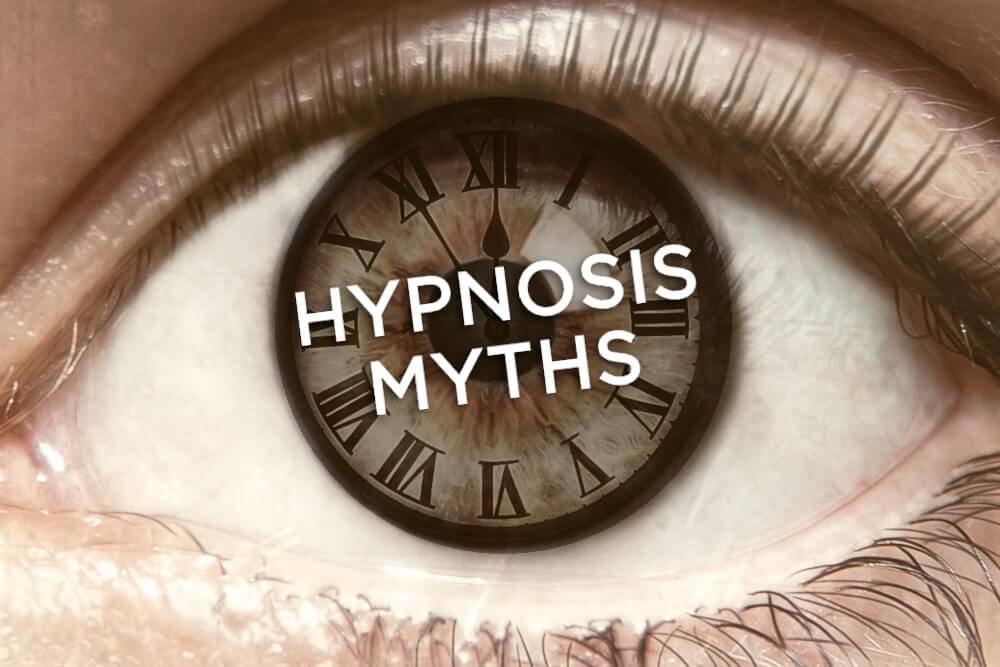Hypnosis is a powerful therapeutic technique that can help you overcome issues, achieve your goals, and promote mind-body health and wellbeing.
By accessing the subconscious mind, hypnosis offers a unique opportunity for personal growth and transformation.
There are many different types of hypnosis, each with its own methods and approaches. In this comprehensive guide, we will explore various types of hypnosis, including traditional hypnosis, Ericksonian hypnosis, cognitive hypnotherapy, clinical hypnosis, stage hypnosis, self-hypnosis, suggestion hypnotherapy, solution-focused hypnotherapy, and cognitive-behavioral hypnotherapy.
Discover which type of hypnosis resonates with you and unlock the power of your mind.
Key Takeaways:
- There are various types of hypnosis, each offering unique methods and approaches.
- Hypnosis can help you overcome fears, change habits, and achieve your goals.
- Ericksonian hypnosis uses indirect metaphors and storytelling to influence the unconscious mind.
- Cognitive hypnotherapy combines hypnosis with cognitive-behavioral therapy to reframe thoughts and beliefs.
- Clinical hypnosis can be used to diagnose and treat clinical disorders and complement medical treatments.
Traditional Hypnosis
Traditional hypnosis is a widely recognized and practiced form of hypnosis that utilizes direct suggestion to facilitate positive change.
Through the power of suggestion, this technique can help individuals overcome a variety of challenges, including building confidence, changing habits, and overcoming fears.
During a hypnotic trance, the hypnotherapist employs clear and concise hypnotic suggestions, tailored to the individual’s desired outcome.
By bypassing the conscious mind and directly accessing the subconscious, traditional hypnosis can create profound shifts in thoughts, beliefs, and behaviors.
Through the use of imagery and carefully crafted suggestions, traditional hypnosis reinforces positive affirmations and encourages the development of new perspectives and behaviors.
Whether you aspire to boost your self-assurance, break free from negative habits, or conquer deep-seated fears, traditional hypnosis can assist you on your journey towards personal growth and transformation.
Traditional hypnosis is a dynamic modality that empowers individuals to unlock their potential, cultivate self-belief, and embrace positive change.
Consider the following examples of how traditional hypnosis can address specific goals:
- Building Confidence: Through targeted suggestions, traditional hypnosis can instill a strong sense of self-esteem and empower individuals to overcome self-doubt and fear of failure.
- Changing Habits: By working directly with the subconscious mind, traditional hypnosis can assist in breaking negative patterns and replacing them with healthier behaviors, such as smoking cessation or weight management.
- Overcoming Fears: Traditional hypnosis has proven effective in helping individuals confront and conquer various phobias and anxieties, providing a newfound sense of freedom and empowerment.
Embrace traditional hypnosis as a tool to enhance your personal growth, harness your inner strengths, and create lasting positive change in your life.
Ericksonian Hypnosis
Ericksonian hypnosis, developed by renowned psychiatrist Milton Erickson, offers a unique approach to inducing hypnotic trances and facilitating transformative change.
Unlike traditional hypnosis that relies on direct suggestions, Ericksonian hypnosis utilizes indirect metaphors, storytelling, and mental confusion to access the unconscious mind and overcome resistance.
By observing details and language patterns, Ericksonian hypnotherapists tailor their approach to each individual, tapping into their inner wisdom and resources.
Instead of explicitly telling you what to do, Ericksonian hypnosis engages your imagination and invites you to explore the deeper layers of your mind.
Through the power of storytelling, metaphors, and indirect suggestions, this form of hypnosis aims to bypass conscious barriers and communicate with your unconscious mind. It recognizes that your inner wisdom holds the keys to unlocking your true potential.
During an Ericksonian hypnosis session, you may find yourself immersed in captivating stories and symbolic imagery that resonate with your unique experiences and beliefs.
These metaphors create a bridge between your conscious and unconscious mind, enabling new insights and understandings to emerge.
As you connect with your inner wisdom, you discover the resources within yourself to overcome challenges, heal emotional wounds, and create positive change.
Indirect Metaphor and Storytelling

“Once upon a time, in the depths of your imagination, there lived a wise old oak tree. Its branches reached towards the heavens, symbolizing unlimited possibilities. As you gaze upon this ancient tree, you realize that its roots run deep into the earth, representing your own deep well of wisdom and strength. Just as the tree stands tall through the changing seasons, so too can you weather life’s challenges with resilience and grace.”
By engaging your imagination through metaphors and storytelling, Ericksonian hypnosis speaks directly to your unconscious mind, planting seeds of transformation and empowering you to access your own inner wisdom.
Cognitive Hypnotherapy
Cognitive hypnotherapy is a powerful and integrative therapeutic approach that combines the techniques of hypnosis with cognitive-behavioral therapy (CBT).
By synergistically blending these two modalities, cognitive hypnotherapy offers a unique and effective method for addressing a wide range of issues.
During cognitive hypnotherapy sessions, the hypnotic trance state is utilized to access the subconscious mind, where deeply ingrained beliefs and thought processes reside.
This allows for the exploration and reframing of thoughts and beliefs that may be contributing to negative patterns and behaviors.
The cognitive aspect of this approach involves utilizing CBT techniques to challenge and modify irrational conscious thoughts. By integrating the power of hypnosis with the cognitive restructuring methods of CBT, clients can gain a deeper understanding of their thoughts and beliefs, as well as develop more realistic and adaptive perspectives.
One of the key goals of cognitive hypnotherapy is to reframe negative thought patterns and beliefs into more positive and empowering ones.
Through hypnosis, individuals can tap into their subconscious mind and modify deeply entrenched thought processes that may be holding them back from reaching their full potential.
Benefits of Cognitive Hypnotherapy
- Facilitates the identification and modification of negative thought patterns
- Helps individuals develop new and healthier ways of thinking
- Empowers individuals to overcome self-limiting beliefs
- Aids in reducing anxiety and stress
- Promotes self-confidence and self-esteem
By combining the transformative power of hypnosis with the practical tools of CBT, cognitive hypnotherapy offers a holistic and comprehensive approach to personal growth and positive change.
Clinical Hypnosis
Clinical hypnosis, also known as hypnotherapy, is a powerful tool used for diagnosing and treating clinical disorders and conditions. This form of hypnosis is often practiced within a medical setting or by licensed health professionals who specialize in hypnotherapy.
One of the key benefits of clinical hypnosis is its ability to help manage symptoms and side effects associated with various clinical disorders.
By inducing a trance-like state, hypnosis can help individuals relax and tap into their subconscious mind, gaining insights into the underlying causes of their symptoms.
Moreover, clinical hypnosis can complement traditional medical treatments by addressing emotional, psychological, and behavioral factors that contribute to the development and progression of clinical disorders.
It can be used in conjunction with medications and other therapeutic interventions to enhance overall treatment outcomes.

Extensive clinical research supports the effectiveness of hypnosis for a wide range of issues, including anxiety disorders, phobias, chronic pain, and post-traumatic stress disorder (PTSD).
By helping individuals relax, manage stress, and explore their inner resources, clinical hypnosis can offer relief and promote healing.
“Clinical hypnosis offers a holistic approach to healing, integrating mind, body, and spirit in the treatment of clinical disorders.” – Dr. Jane Richards
During a clinical hypnosis session, the hypnotherapist utilizes various techniques tailored to the client’s specific needs and goals. This may involve deep relaxation, visualization, guided imagery, and positive affirmations to promote positive change and facilitate healing.
The Benefits of Clinical Hypnosis:
- Reduces anxiety and stress
- Manages chronic pain
- Enhances self-confidence and self-esteem
- Overcomes phobias and irrational fears
- Improves sleep patterns and quality
- Aids in smoking cessation and weight management
- Helps manage symptoms of chronic illnesses
If you have been struggling with a clinical disorder or are looking for an alternative approach to complement your medical treatments, clinical hypnosis may offer a viable solution. Consult a qualified hypnotherapist or licensed health professional who specializes in clinical hypnosis to explore how it can benefit you on your healing journey.
Stage Hypnosis
Stage hypnosis offers an entertaining and captivating experience for audiences in theaters and stage shows. Through the power of suggestion, groups of volunteers are guided into a hypnotic state where they display amusing and often unexpected behaviors.
While stage hypnosis is primarily focused on entertainment rather than therapy, it serves as a powerful demonstration of the influence of suggestion on our subconscious minds.
| Benefits of Stage Hypnosis | Examples |
|---|---|
| Entertainment |
|
| Group Hypnosis |
|
| Demonstrating the Power of Suggestion |
|
Stage hypnosis provides a unique platform for both the hypnotist and the volunteers to showcase the incredible power of suggestion. It entertains and delights audiences while leaving them in awe of what the human mind can achieve under the influence of hypnosis.
Conclusion
In conclusion, hypnosis offers a versatile and transformative approach to therapy.
With various types of hypnosis available, such as traditional, Ericksonian, cognitive, clinical, stage, self-hypnosis, suggestion, solution-focused, and cognitive-behavioral hypnotherapy, you have a range of techniques and modalities to address your specific needs and goals.
Whether you’re seeking to build confidence, overcome fears, manage clinical disorders, or simply explore your subconscious mind, hypnosis can help you tap into your inner resources and promote positive change.
Each type of hypnosis offers its unique benefits and methods of achieving desired outcomes.
By partnering with a skilled and experienced hypnotherapist, you can embark on a transformative journey to unlock your full potential and improve your quality of life.
Discover the power of hypnosis and its ability to harness the untapped capabilities of your mind, paving the way for personal growth and self-improvement.
FAQ
What is traditional hypnosis?
Traditional hypnosis is one of the most popular types of hypnosis that uses direct suggestion during a hypnotic trance to promote change. It is effective for goals like building confidence, changing habits, and overcoming fears.
Who developed Ericksonian hypnosis?
Ericksonian hypnosis was developed by renowned psychiatrist Milton Erickson. It uses indirect metaphor, storytelling, and mental confusion to influence the unconscious mind and bypass resistance.
How does cognitive hypnotherapy work?
Cognitive hypnotherapy combines hypnosis with techniques from cognitive-behavioral therapy (CBT). This integrated approach helps clients replace dysfunctional thought patterns with more realistic and adaptive thoughts and beliefs.
What is clinical hypnosis used for?
Clinical hypnosis refers to the use of hypnosis for diagnosing and treating clinical disorders and conditions, often within a medical setting or by licensed health professionals. It can help manage symptoms, control pain, and complement medical treatments.
What is stage hypnosis?
Stage hypnosis provides entertainment by hypnotizing groups of volunteers in theaters and stage shows. It focuses more on performance than therapy and can demonstrate the power of suggestion.
What are the different types of hypnosis?
The different types of hypnosis include traditional hypnosis, Ericksonian hypnosis, cognitive hypnotherapy, clinical hypnosis, stage hypnosis, self-hypnosis, suggestion hypnotherapy, solution-focused hypnotherapy, and cognitive-behavioral hypnotherapy.




























































